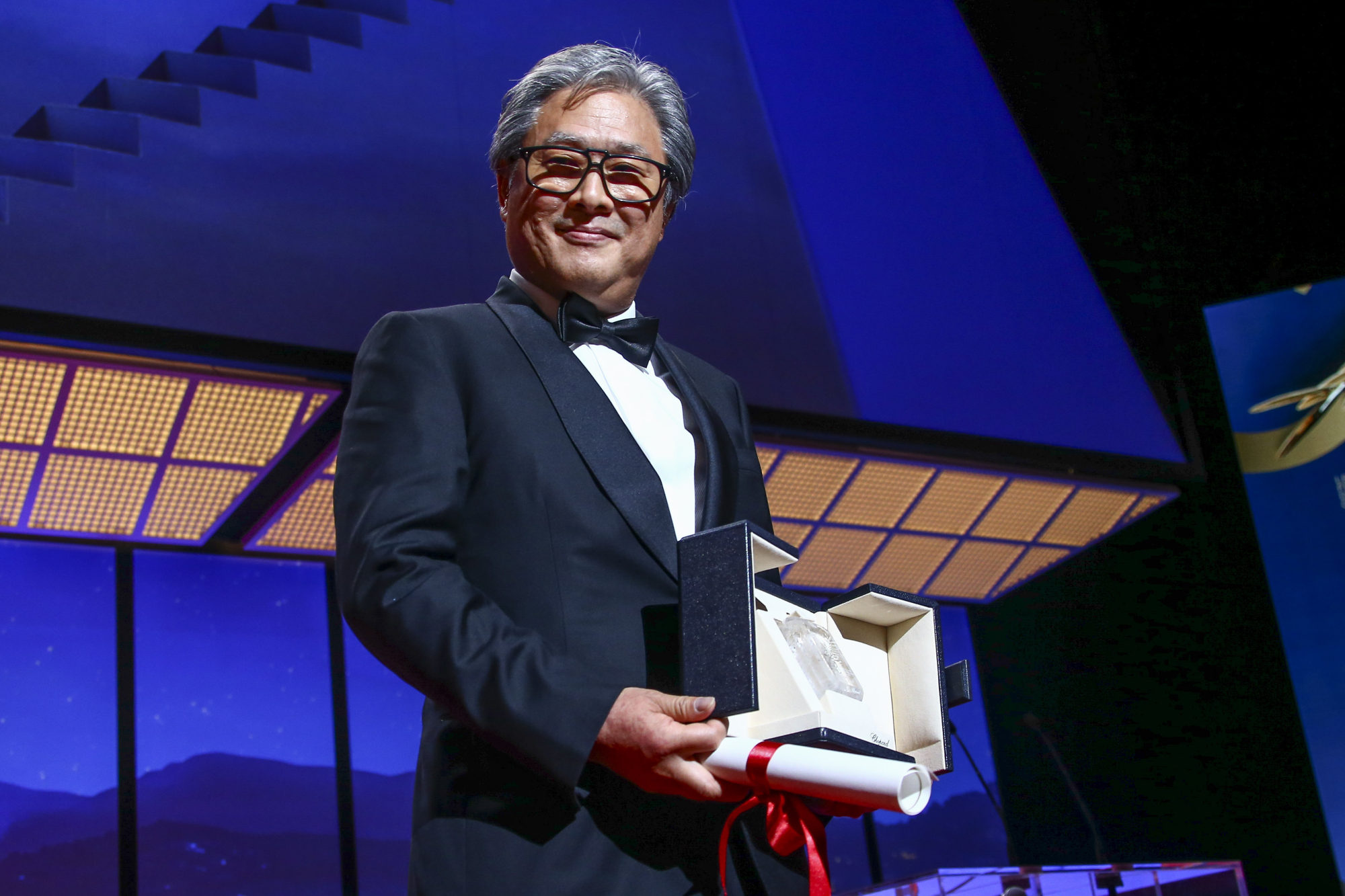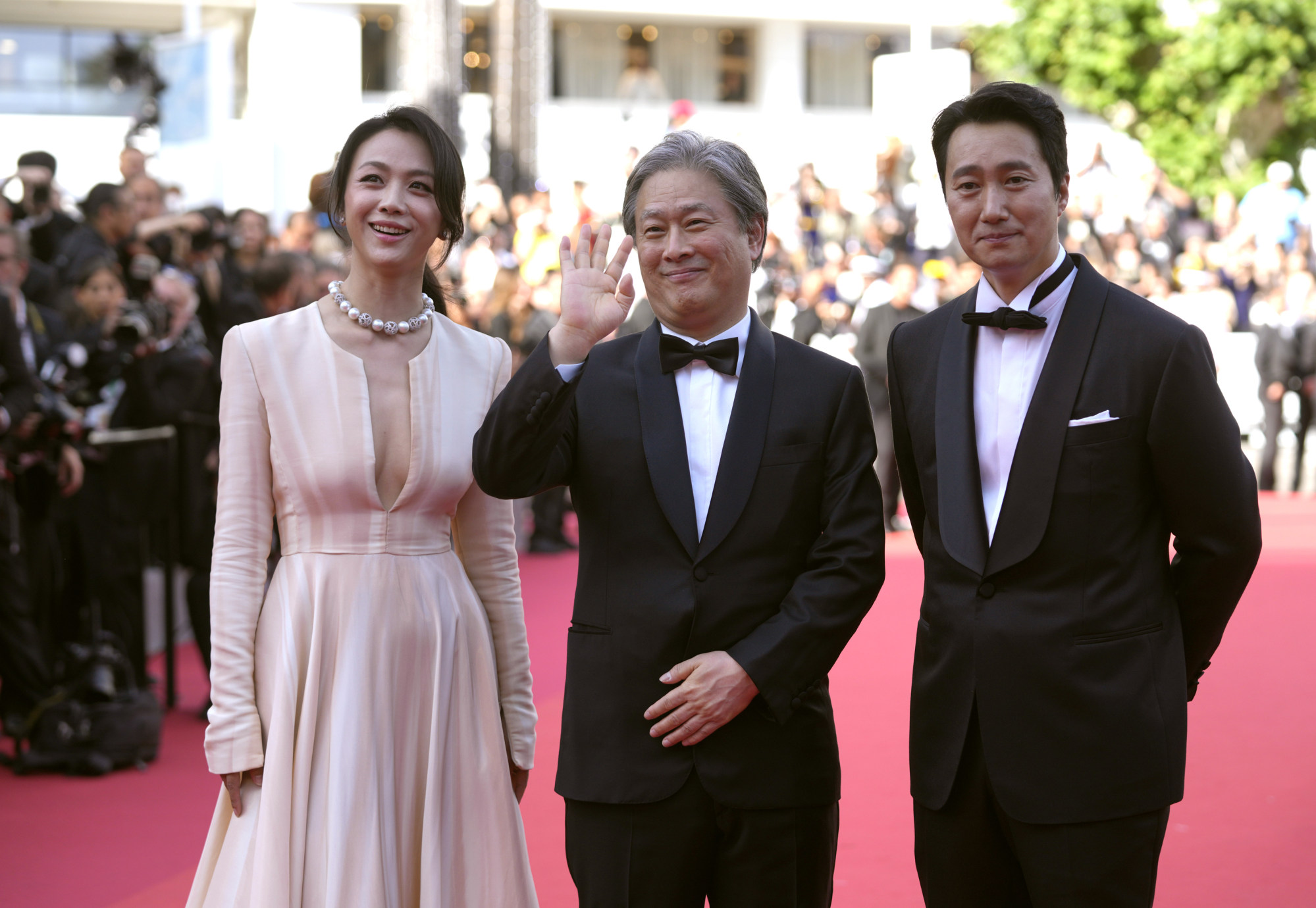
Decision to Leave: Cannes Film Festival best director winner Park Chan-wook on the movie’s blend of romance and police drama
- Park calls his film, starring Tang Wei as a widow and Park Hae-il as a detective investigating the death of her husband, a ‘love story for grown-ups’
- He talks about its subliminal Hitchcock influences, why he chose Chinese actress Tang for the widow role, and his plan to make more English-language films
Decision to Leave is different – a skilful, subtle blend of romance and detective yarn.
“It’s important to understand my film as these two genres being completely one – in unison,” Park says during an interview with the Post.
“A complete amalgamation. It’s not like this is a police drama and a romance – there’s no ‘and’. It’s one thing with two different dimensions.
“But then if you were to force me to just choose one, then I will choose romance. I would say this is more of a romance.”
Park Hae-il plays Hae-jun, a married detective working the beat in Busan. When he’s called to investigate the death of a man who fell from a mountain peak, he begins to fall for his widow, the Chinese-born Seo-rae (Tang Wei), who may be her husband’s murderer.
The 10 best movies from this year’s Cannes Film Festival
Critics immediately compared the film’s twisty narrative to the work of the masterful Alfred Hitchcock. “This is the kind of Hitchcockian film made by someone who hasn’t necessarily seen a Hitchcock film before,” wrote British newspaper The Guardian.
“Actually this reaction is so amusing to me,” says Park. “Because while I was making this film I was not thinking about Hitchcock or any of his films.”
Then he started reading the reviews and he had to concede, to some degree, they were right. “Perhaps that is just in my blood, in my DNA, in my subconsciousness or something. Because when I was studying film, Hitchcock films were my textbook.”
His favourite? Unsurprisingly, it’s Vertigo, also a romantic mystery about obsession.

Curiously, Park told his co-writer Jeong Seo-kyeong – whose on-off collaborations with the director go back to 2005’s Lady Vengeance – to watch an altogether different film for inspiration, David Lean’s Brief Encounter.
The 1945 drama, which sees Celia Johnson’s married woman tempted by a romantic liaison with Trevor Howard’s stranger, is now considered a classic. “I kind of like the mood in this film,” admits Park, whose own past work has rarely been associated with such sensitive fare.
Another big inspiration was Tang Wei, the Chinese star who made such an impression in Ang Lee’s 2007 film Lust, Caution. It was Park and his co-writer’s love of the actress that made them want to make her character Chinese.

“At this point in time, we didn’t know this character’s occupation, her identity, anything like that,” he says. Yet making her an outsider in Korea immediately set the template for this “lonely” and “isolated” figure.
On the flip side is Hae-jun, a detective so methodical when he first investigates the death of Seo-rae’s husband, he literally retraces his steps – climbing back up the vertigo-inducing mountain he fell from.
“It shows his pride, his professionalism, his sense of responsibility as a detective, but also the fact that he is the person who would always go by the book,” notes Park. You might also add, it hints at how his obsession with the suspect, metaphorically, will see him follow the deceased’s path.

Before the film was even released, Park had said Decision to Leave was a “love story for grown-ups” and that the sex and violence will not be as hard-core as in his earlier work. “People may think it’s monotonous and less sensational than my previous ones,” he said laconically.
“It’s not at all [that],” he says, shaking his head. “It’s just different. Because it’s a different film. That’s why I said that, and – who knows? – my next project may have even more violence and sex.

“And there is a Western film that I have been preparing for a very long time that I have not yet got investment [for]. But of course being the Western film, it’s going to include those violent scenes.” Doubtless fans of his early work will be relieved that the 58 year-old hasn’t mellowed as he’s got older.
Park is currently working with HBO and A24 on the television series The Sympathizer, based on a Pulitzer Prize-winning novel by Vietnamese-American professor Viet Thanh Nguyen, which tells the story of a half-French, half-Vietnamese communist spy during the final days of the Vietnam war.
For that series, he will be working alongside Canadian actor-director Don McKellar and a cast that includes Robert Downey Jnr.
It’s also his second espionage TV show in a row following 2018’s John le Carré adaptation The Little Drummer Girl, with Michael Shannon and Florence Pugh.
Squid Game star Lee Jung-jae on his film directing debut Hunt at Cannes
Now he’s got a thirst for foreign excursions. “In an ideal world, I would love to make one Korean project and one English-language project consecutively,” he says. “But it doesn’t really depend on how I feel.”

It’s hard not to see Decision to Leave taking one of the five nominations for best foreign language film at the Oscars next year, although Park won’t allow himself to think that far ahead. Perhaps he’s just too much of a perfectionist – something his immaculate film suggests.
“It’s not my personality at all,” he cries. “It’s just with my film. If you see me in other places … you’d call me a kind of silly person!”

 (1).JPG?itok=0BHk6odg&v=1665981271)